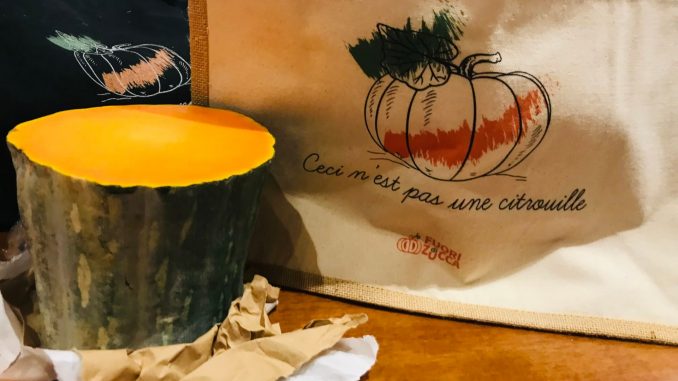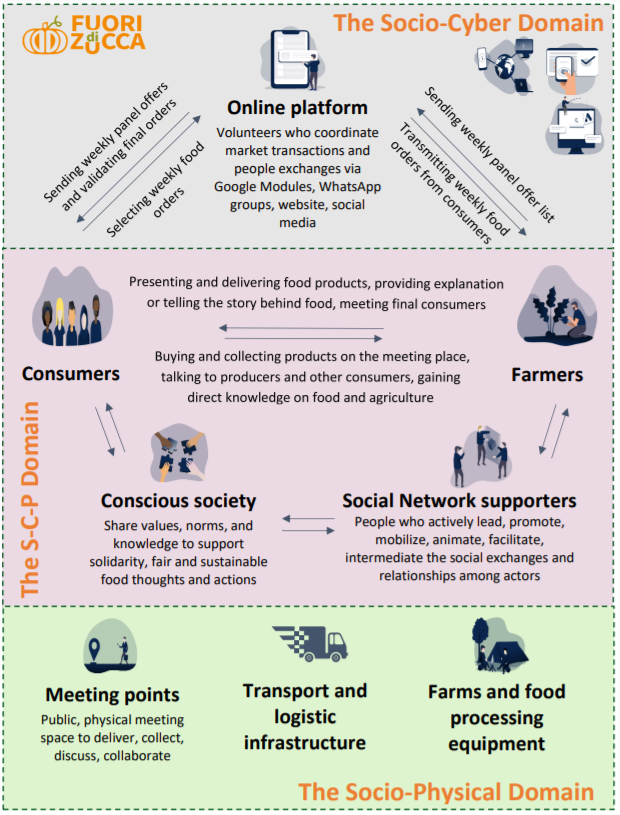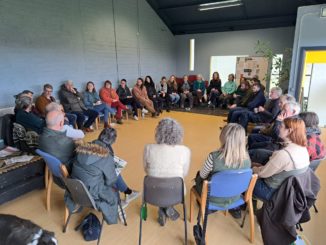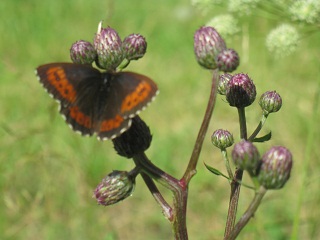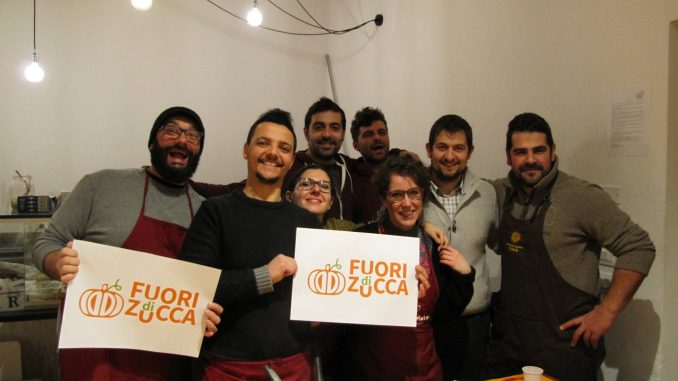
Fuori di Zucca is not just an online platform coordinating fair and sustainable purchasing transactions. The association mobilises a peer-to-peer network, where members of civil society, policymakers, producers, consumers can interact around a common mission: food sovereignty. So how does it do this? Matteo Metta has more. This article first appeared on the DESIRA website .
Since 2016, Fuori di Zucca (i.e. Out of Pumpkin) is an association coordinating a Solidarity Purchasing Group (GAS) without lucrative purposes at the centre of Perugia city (Italy). Mr. Domenico Lizzi (Project Coordinator) explains the role of digital tools in this network of social and physical exchanges between consumers and farmers.
Fuori di Zucca
Fuori di Zucca is currently composed of 80 consumers and 10 producers members. It strives for promoting the concept of food sovereignty in all its dimensions: e.g. the direct relationship between consumers-producers, sustainable and ethical production, fair value-chain distribution.
The solidarity purchasing group is led by the consumers, coordinated by volunteers. This is an essential point. Consumers are the first actors who commit for active participation, constant dialogue, and trust-based relationship with the local producers. 100% of their purchase goes directly to the farmers. Farmers are small-scale, close to Perugia, and follow ethical and sustainable farming methods. The organic label is not a prerequisite for Fuori di Zucca, considering that these farmers already produce organically, and consumers actively participate along the chain.
How does the Solidarity Purchasing Group work?
In Fuori di Zucca, the purchasing transactions between consumers and producers are intermediated by a voluntary group of young activists by the means of two online tools: WhatsApp and Google Modules. These two easily accessible tools allow to centrally manage data, standardise procedures, reduce the costs and risks of errors in transactions like 1) preparing the list of food offers with farmers; 2) selecting the food options (ordering); 3) validation of orders; 4) transmission of the order to the producers; 5) food distribution; and any other general communications (e.g. new producers joining the group or additional products available in the panel list). Every Friday, a WhatsApp message containing a Google Form is sent to all members. Until the next Monday, each consumer can select the products via Google Form and receive a confirmation email. On every Wednesday evening, consumers can collect and pay their products and meet the farmers.
Fuori di Zucca is not just an online platform coordinating fair and sustainable purchasing transactions. The association mobilises a peer-to-peer network, where members of civil society, policymakers, producers, consumers can interact around a common mission: food sovereignty. This is done both via digital (e.g. Facebook page, Website, WhatsApp groups) and socio-physical means (e.g. organising group discussions, movies projections, food fairs). Figure 1 displays the various social, digital (or cyber), and physical entities in the domains composing the system ‘Fuori di Zucca’.
The role of digitaliastion in Fuori di Zucca
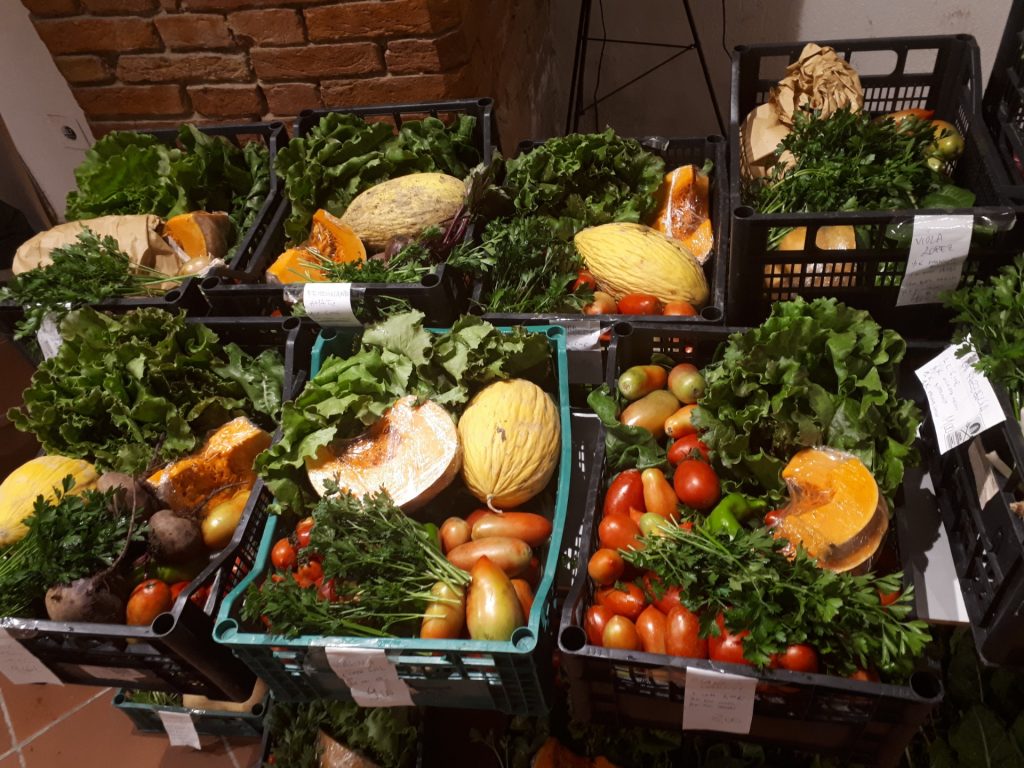
Between 2016-2017, e-mail was the main tool used by Fuori di Zucca to coordinate the purchases. Considering its pervasive adoption in smartphones, emails were replaced by WhatsApp groups and messages (2017-2020). Each tool has its pros and cons. For instance, orders via WhatsApp’s groups were weak in terms of structuring data collection, data analytics, reducing error risks, respecting people privacy, streamline the volunteers’ work with the growing demands and number of members.
These challenges were overcome by combining WhatsApp messages with a link to Google Module, as discussed and agreed by the members. The following results proved that this combination was successful not only in terms of better management of transactions but also in terms of increasing expenditure and orders, which are vital for the sustainability of the group.
| Indicators | 2017 | 2018 | 2019 | 2020(Until Oct) |
| Total consumer expenditure (EUR) | 5,843.46 | 15,571.56 | 27,262.63 | 31,799.83 |
| Average weekly expenditure per consumer (EUR) | 14.36 | 15.00 | 20.30 | 25.77 |
| Average number of consumers who make weekly orders | 14.54 | 24.14 | 31.23 | 34.28 |
It is important to highlight that digital tools are not the only factor contributing to this progress. Domenico explains that these results can also be due to the position of the meeting point, the number of producer members, the range of products in the panel lists, the stability of consumers residence and lifestyle, etc.
The number of purchases or the volume of expenditure are not the only parameters to assess the relevance of this solidarity group. Social, cultural, and moral aspects need to be considered, such as promoting consumers’ awareness about food seasonality, education about traditional food recipes, and transparency about the origin of food products. By any digital or socio-physical means, Fuori di Zucca plays an important educational and governance role in sustainable food consumption and production.
Behind each digital tool, there is a system of values, views, knowledge, infrastructure to be developed. Fuori di Zucca shows how the adoption of simple tools can drive a sustainable digitalisation in agriculture which challenge food market concentration and provide citizens with high-quality food to a fair price.
DESIRA (Digitisation: Economic and Social Impacts in Rural Areas) is a Horizon 2020 project (2019-2023) coordinated by the University of Pisa which involves 25 partner organisations (research institutes, NGOs and SMEs) in a multi-actor and inter-disciplinary Consortium. This article first appeared here.
More
Rural Dialogues | The Three Conditions of Sustainable Rural Digitalisation
“Resilience and Transformation” – 5th SCAR Report’s Pathways for Europe’s Food System
Ireland’s Our Rural Future – a rural digitisation gold standard?
CAP, European Green Deal and the Digital Transformation of Agriculture
Webinar | Growing Food Resilience in Covid19 times – New Tools and Approaches for Agroecology

